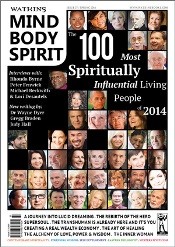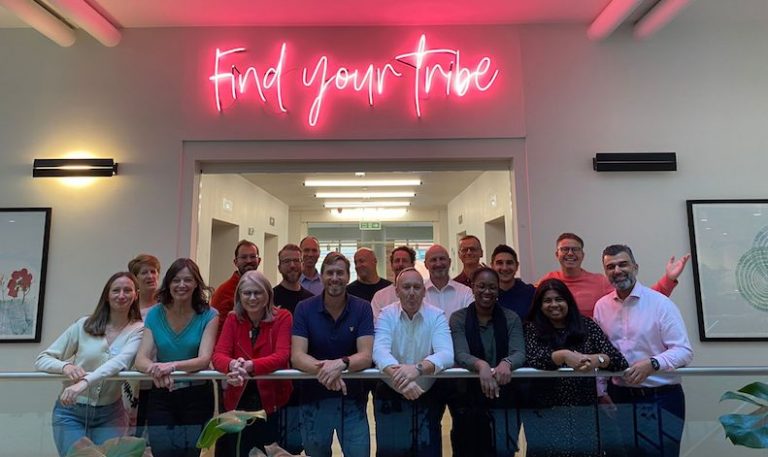
This post explores how to find your true north in your work.
It highlights the current trend of individuals seeking greater meaning in their careers and highly successful organisations having a purpose beyond profits. To take a step closer to being who you truly are in your work, three practical suggestions are offered.
The first time I ever thought about what was mine to do in this world was when I was 17 years old. I had completed my A-levels in maths, physics and geography – subjects I’d chosen with the intention of studying architecture. However, when I discovered that I was hopeless at three-dimensional geometry and found technical drawing rather tedious, this desire began to crumble.
Becoming an architect had been my Dad’s unlived dream. As a civil engineer, his chosen profession lacked the creative outlet he craved. With a family of six to provide for, there was no option to re-train or switch career track. My Dad channelled his artistic energies into transforming a heap of an Edwardian house into our family home, full of lovingly restored antiques and several carefully designed extensions.
As I stood at this first real crossroads of my life, I felt lost and disorientated.
The gold that I thought I wanted was not lighting me up at all. Designing buildings for a living made my heart sink. I didn’t realise until many years later that I had fallen into the classic trap of trying to live out one of my parent’s unfulfilled dreams.
As Parker Palmer, the writer, educator, activist and founder of the Center for Courage and Renewal in Seattle, USA, reflecting on the early days of his own career put it:
“The life I am living is not the same as the life that wants to live in me.”
No one had taught me to tune in to what I was really interested in. I didn’t know back then how to listen for what my life intended to do with me. There had been no lessons at school about how to decondition myself from pleasing my parents. No teacher had ever asked me: What are you really about? What do you want? What would you love to do?
A sign of the times
Finding more meaningful work is a challenge that more and more people are leaning into. It is not only Generation Y (born between 1980 and 2000) who want to have careers and lives that make a difference. Without wishing to stereotype, the desire of the Net Generation to have high impact work, rather than achieve professional success alone, might be making the rest of us up our game.
If this all sounds like too much navel-gazing or self-absorbed soul-searching, there are good reasons to pay attention to this increasing trend. There is growing recognition that organisations with a purpose beyond profits have an edge over their competitors.
For example, the 2014 Deloitte Core Beliefs and Culture survey found that creating a “culture of purpose” builds business confidence and drives growth. Their online survey carried out in the US with over 1000 respondents found that:
- 82% of respondents who work for an organisation with a strong sense of purpose are confident that their organisation will grow this year, compared to 48% of those who do not have a strong sense of purpose.
- 81% of respondents working for organisations with a strong sense of purpose say that their stakeholders trust their leadership team (vs. 54%).
- 74% of respondents working for purposeful organisations say their investors are confident in the company’s growth prospects over the next year (vs. 52%).
Having a guiding greater purpose is a key characteristic of highly successful companies. Frederic Laloux in his 2014 book Re-Inventing Organisations demonstrates that when there is a strong sense of alignment between an organisation’s mission and an individual’s sense of purpose, exceptional results are delivered.
How, then, do you establish a purpose for yourself? What can you do to create a more meaningful life? Having sat with these questions for over twenty-five years, I offer three suggestions below.
1. Follow your thread
I believe that the deeper calling of our work is a golden thread that weaves through the days and times of our life. The problem is that many of us don’t ever take hold of the thread. We settle for jobs that don’t fulfil us. We dream of running our own business but don’t want to step out. We know that our work is too small for our spirit but we resist doing anything about it.
To avoid ending up in this cul-de-sac, notice what patterns play out in your life. When I decided not to pursue architecture, I had to make a decision about what subject I was going to study. Looking at the books by my bedside, I noticed that they were all about psychology. Reflecting on the conversations I had with my Dad, these were often about whether people enjoyed their jobs. Looking back I can see how there was a “thread” running through my reading and conversations that I later wove into a career as a business psychologist.
Our heart’s calling gives us glimpses of the life that wants to be lived through us. It is also deeply mysterious, as if our purpose shows up and then disappears over the brow of the hill. The moments that have been most revealing to me have sometimes been quite mundane – such as noticing an energising conversation. When you have these experiences of greater vitality, ask yourself: What is this sense of aliveness telling me? If there is a thread running through my life, what might it be?
2. Turn within
When something energises you, pay attention! If your heart lifts at the thought of making that job application, going for that interview or setting up your own business, stay tuned. Lightness of heart is a green light that says, “Walk this way!” Ask yourself: What door might be opening here? What would I really love to happen?
When you feel heavy-hearted, take note too. This is valuable data that something might be off-track in your life. Instead of ignoring it (as my younger self did), listen to what the heaviness is telling you. Other signs that you might be wandering off your path include feeling depressed, agitated or restless.
“Listening to your life”, as Parker Palmer calls is, is about discovering and uncovering who you really are. Our vocation, he says, is not:
“…A goal to be achieved but a gift to be received… Vocation does not come from a voice “out there” calling me to be something I am not. It comes from a voice “in here” calling me to be the person I was born to be.”
3. Take some risks
Stepping into our true work may sound simple but it is often not easy. It involves letting go of the “shoulds”. This could include drawing a line under the career that our parents or partners want us to have, or letting go of a dream job that has turned out to be a nightmare. As we step across this threshold we risk disappointing or even upsetting others who may be invested in us continuing as we are, or at least being predictable.
Dancing to the beat of our own drum may also involve grappling with obstacles, both tangible and intangible. Hearing the call to run our own business might mean having to deal with financial instability and move through our own anxiety about where the next piece of client work is coming from. We may come face-to-face with aspects of ourselves that we don’t like: our need for control, our self-doubt or our desire to show up as all sorted.
Despite these challenges, when take a single step towards being more of who we truly are, we act with beauty and courage. When we set down the burden of being something that we’re not, we set free our hidden essence. When we each find our place in the wider world, we have peace in our hearts and the greater whole benefits too.
Want to find out more?
If you are interested in exploring our way of working, Sarah and Ed Rowland of the Whole Partnership are running a programme on Stepping into Personal Purpose Programme (June 19-21, 2017) in London.
References
The 2014 Deloitte Core Beliefs and Culture
http://www2.deloitte.com/us/en/pages/about-deloitte/articles/culture-of-purpose.html






